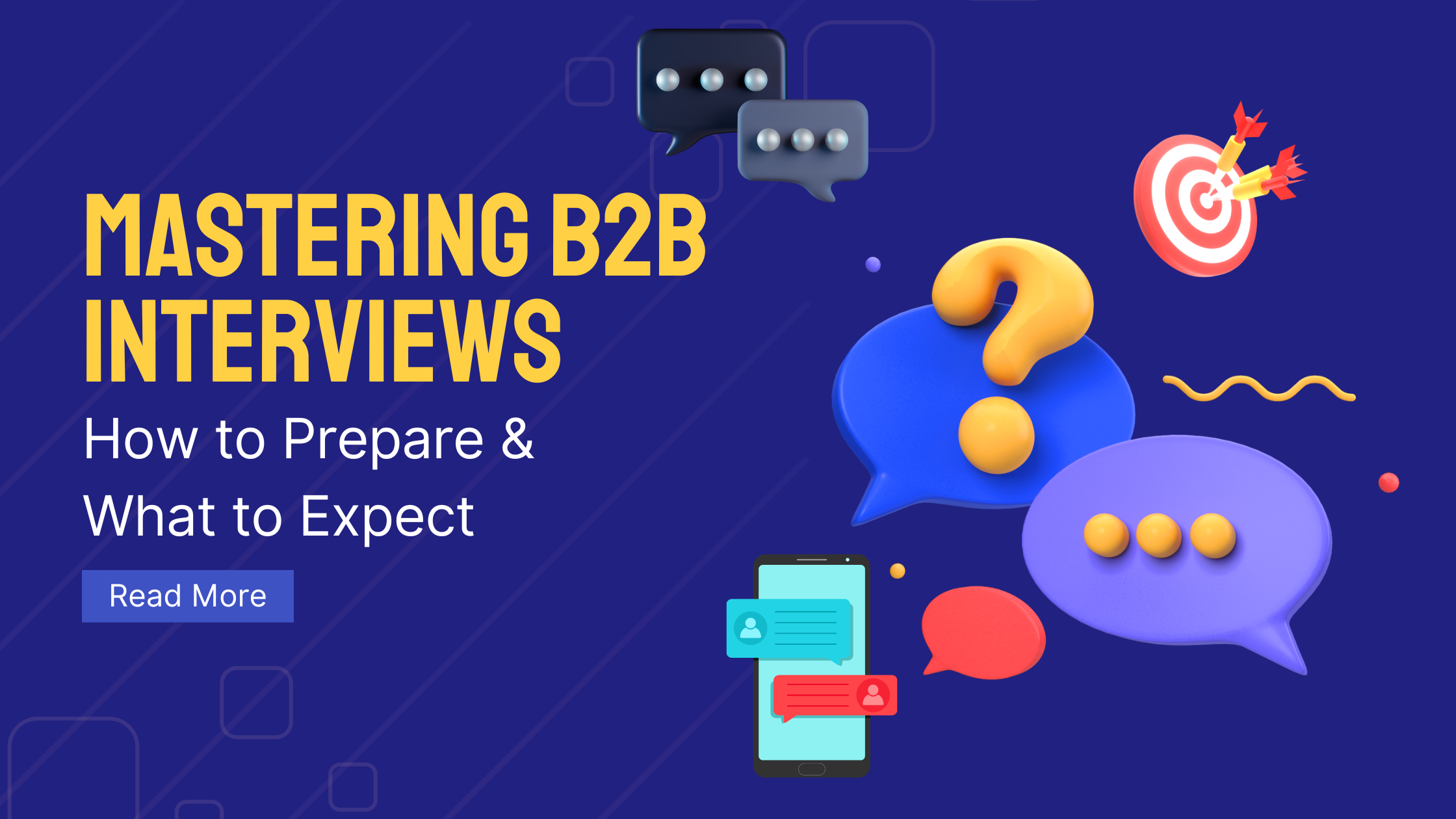Mastering B2B Interviews for Market Research. How to Prepare and What to Expect

Author: Anna Boiko, Owner, Lead Researcher at IntroMarket Research
With nine years of experience in the market research industry, I’ve conducted hundreds of one-on-one interviews, ranging from validating business ideas to estimating market development and identifying market opportunities. As there are fundamental processes involved in preparing for B2B interviews, I decided to write a short article outlining these aspects and to prepare clients for what they should expect when choosing this research method.
Number of Interviews
A recommended approach is to aim for around 10 interviews per industry segment. For instance, if seeking feedback from architects in San Francisco, conducting 10 interviews within this professional cohort provides a holistic understanding of industry nuances and preferences.
Crafting the Script and Leveraging Secondary Data
Central to the success of B2B interviews is the design of an effective questionnaire. Avoiding questions with binary yes/no responses fosters in-depth dialogue.
When soliciting quantitative data, such as market shares or segment size, employing strategic questioning techniques is paramount.
When asking about numbers, such as ‘estimate market shares of key players’ or ‘how big is the market segment,’ and the respondent doesn’t know the answer, encourage approximate estimations. Phrases like “approximately” or “your best guess” empower participants to contribute meaningfully, even in the absence of precise data.
Provide reference points from secondary research. For example, “The market grew by 3% last year; do you expect the same growth or anticipate a more stable situation?”
Building the Database of Contacts
The foundation of successful B2B interviews lies in sourcing a robust database of contacts. When sourcing contacts for the study, you have to take into account two factors: response rate and industry specificity.
Acknowledging the response rates, which may vary from 14% to 50%, highlights the necessity of reaching a broad audience.
The complexity of contact sourcing varies across industries. While collecting contact details from dental clinics via a Google search in a specific region can be quite fast, engaging with UX designers or marketers at enterprise companies demands a more nuanced approach. You will need to leverage professional networking platforms like LinkedIn and conduct email outreach. A personalized approach becomes imperative in such scenarios.
Managing Time Expectations
While some may anticipate conducting 10 interviews within a week, accommodating the schedules of busy professionals often extends the timeline. B2B professionals lead busy lives, often requiring scheduling adjustments and rescheduling. Be sure to keep sourcing contacts even when you have scheduled all interviews, mitigating potential disruptions.
Choosing the Interview Format
Both phone and video interviews offer effective platforms for engagement, each with its unique advantages.
Phone interviews are conducive to flexibility and convenience, catering to the busy schedules of professionals. I conducted dozens of phone interviews within the B2B sectors when the professionals who took part in the study were driving home from work. It makes sense; they need to commute, and at the same time, they have time to speak in the comfort of their car without worrying about the next meeting. Those were the best interviews.
Use video interviews only when you need to demonstrate product features or important slides, and it is necessary to share your screen.
Prioritizing the comfort and preferences of interviewees enhances engagement and fosters candid dialogue.
Transparency and Appreciation
Honesty regarding the time commitment of interviews is paramount to building trust. Clear communication upfront regarding the expected duration sets the stage for a positive experience. If you promised that the interview would take 20 minutes and you see that it is taking around 1 hour, this is not acceptable and not professional; you failed as an interviewer.
To increase the response rate, demonstrate appreciation for participants’ time through financial incentives or value-added benefits.
Financial incentives for B2B interviews ($100+) typically range higher compared to B2C engagements (Amazon Gift Cards or $25-$50 rewards).
However, there are two options you can offer instead of monetary:
- Donate x amount in their name to the Charity organization of their choice.
- Offer a free executive summary of the study you are working on.
Harnessing Referrals and Ensuring Data Privacy
Leveraging referrals emerges as a strategic tactic for expanding the pool of qualified leads. At the end of the interview, inquire if the professional can recommend an expert who could participate in the study. This not only enlarges your database but also increases the likelihood that referred individuals will be inclined to participate in the study.
Transparent communication regarding data usage policies, seeking consent for recordings, and respecting participants’ preferences regarding future engagements uphold ethical standards and foster trust.
If you are thinking about using comments from the interviews in your content, you must obtain consent from respondents.
Hiring a Professional Market Researcher
Even though you might have been working in the industry for many years and know everything about it, results from interviews that you will conduct by yourself will likely be biased. You will likely pay attention to the information you want to hear and neglect information that you do not agree with.
Work with a market researcher to discuss the end goals of the research and how the obtained data will be used. Go through questionnaires several times, and do not be afraid to add more questions after receiving scripts from the first interviews.
An external market researcher brings objectivity to the study, which is crucial for maintaining unbiased results.
Feel free to reach out to me at anna@intromarketresearch.group if you have any further questions.
